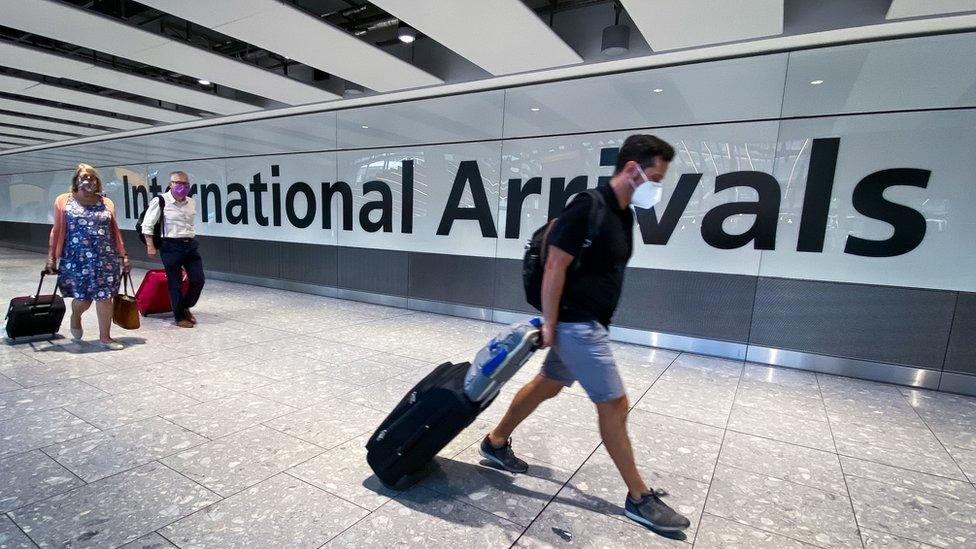Heathrow told to reduce passenger charge
- Published
- comments
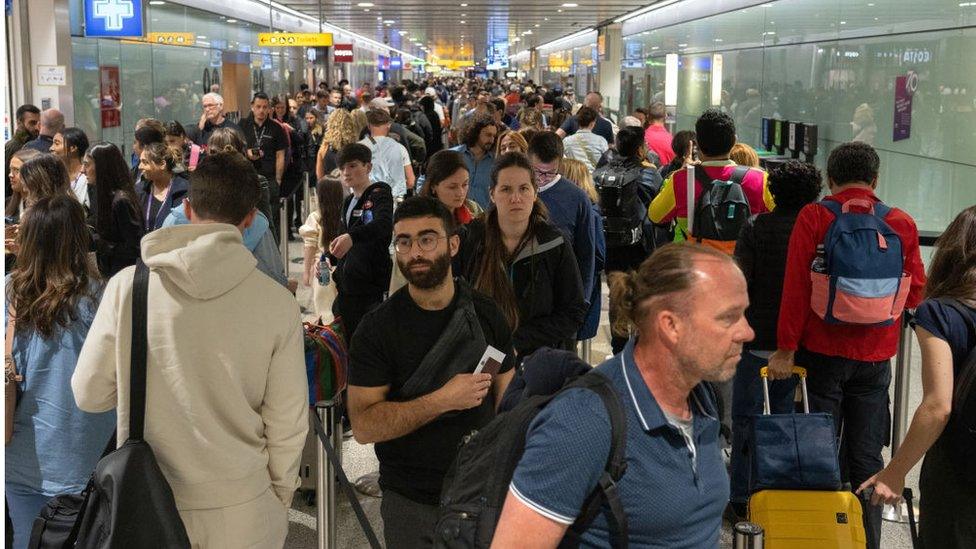
Heathrow has been told to cut passenger charges for airlines each year until 2026 by the Civil Aviation Authority.
The regulator said the reduction in charges reflected the recent rebound in passenger numbers, but would still allow the airport to invest.
But Heathrow, which wanted the charges raised, said the move would undermine the delivery of key improvements.
The charges are paid by airlines, but can then be passed onto passengers via airfares.
The fees go towards operating terminals, runways, baggage systems and security.
At the moment, the average charge per passenger at Heathrow is £30.19, and the CAA has said this will fall to £26.31 by 2026. However, Heathrow wanted to increase it to £41.95.
The CAA said the reduction in the charge "reflects expected increases in passenger numbers as the recovery from the pandemic continues and the higher level of the price cap in 2022, which was put in place in 2021 to reflect the challenges from the pandemic at the time".
In December 2021, Heathrow was given permission to raise the passenger charge from £19.60 to £30.19 for this summer.
Richard Moriarty, chief executive of the CAA, said the cut in charges was "about doing the right thing for consumers".
"Our independent and impartial analysis balances affordable charges for consumers, while allowing Heathrow to make the investment needed for the future."
However, Heathrow chief executive John Holland-Kaye said the regulator "continues to underestimate what it takes to deliver a good passenger service, both in terms of the level of investment and operating costs required and the fair incentive needed for private investors to finance it".
"Uncorrected, these elements of the CAA's proposal will only result in passengers getting a worse experience at Heathrow as investment in service dries up," he said.


How much should Heathrow be able to charge airlines per passenger for the cost of operating terminals, runways, baggage systems and security?
The airport and major airlines that use it have very different views.
The CAA says it has considered expected increases in passenger numbers, although it does highlight that uncertainties lie ahead, and Heathrow passenger numbers aren't predicted to recover to pre-Covid levels until 2025.
It also talks of balancing the need for charges that are affordable for consumers - that is, that won't prompt big fare hikes - with allowing Heathrow to invest in big improvements that will improve passengers' experience.
Heathrow argues that balance has not been got right.
Airlines see today's announcement as positive, but called for the charges to be lower still.
This is an important milestone but not the end of the story.
The proposals are now subject to consultation before a final decision is published later this year. Then, there will be the option of appealing to the Competition and Markets Authority.

Mr Moriarty told the BBC's Today programme that the strength of the recovery "with more passengers coming in" meant charges could be lowered.
But he said the cap would still allow for £3.6bn investment by Heathrow, including new baggage systems for terminal 2.
Earlier this month 5,000 passengers were hit by Heathrow flight cancellations after problems with the baggage system led to luggage piling up.
Mr Moriarty said that problems of disabled passengers being left on planes after other passengers had got off, highlighted by BBC security correspondent Frank Gardner, meant the airport must "raise its game".
"When it comes to disruption, everyone in aviation wants to avoid the scenes that we've seen over the last couple of months," he said.
"Everyone is working really hard to bring new people into the system with recruitment and we've also put pressure on the airlines to make sure their schedules over the next few months are deliverable for the passenger".
He said the proposals should take £4 off the cost of a ticket from Heathrow by 2026. At the moment, the £30.19 charge makes up about 5% of the cost of a typical fare from Heathrow to New York.
Shai Weiss, the chief executive of Virgin Atlantic, said the regulator "can and must go further to lower the cap" from its proposals, especially as consumers face cost of living pressures.
The chief executive of British Airways owner IAG, Luis Gallego, said: "In 2022 airport charges at Heathrow will still be three times more expensive than its EU rivals and 56% higher than last year."
Industry body Airlines UK said the Heathrow charges were "still too high", adding that it was "the most expensive airport in the world".
"The CAA can and should go further to bring it into line with other European hubs," it added.
The International Air Transport Association (Iata) called for Heathrow charges to drop "now", saying the rise announced in December 2021 was "based on false assumptions that are already being proven wrong by the strong post-pandemic demand for travel".
Willie Walsh, Iata's director general, said: "The CAA must stop rewarding this monopoly whose insatiable desire to gouge its customers will damage the competitiveness of 'Global Britain'."

Do you work at an airport? Do you have a summer holiday coming up? Email haveyoursay@bbc.co.uk, external.
Please include a contact number if you are willing to speak to a BBC journalist. You can also get in touch in the following ways:
WhatsApp: +44 7756 165803
Tweet: @BBC_HaveYourSay, external
Please read our terms & conditions and privacy policy
If you are reading this page and can't see the form you will need to visit the mobile version of the BBC website to submit your question or comment or you can email us at HaveYourSay@bbc.co.uk, external. Please include your name, age and location with any submission.
- Published17 June 2022
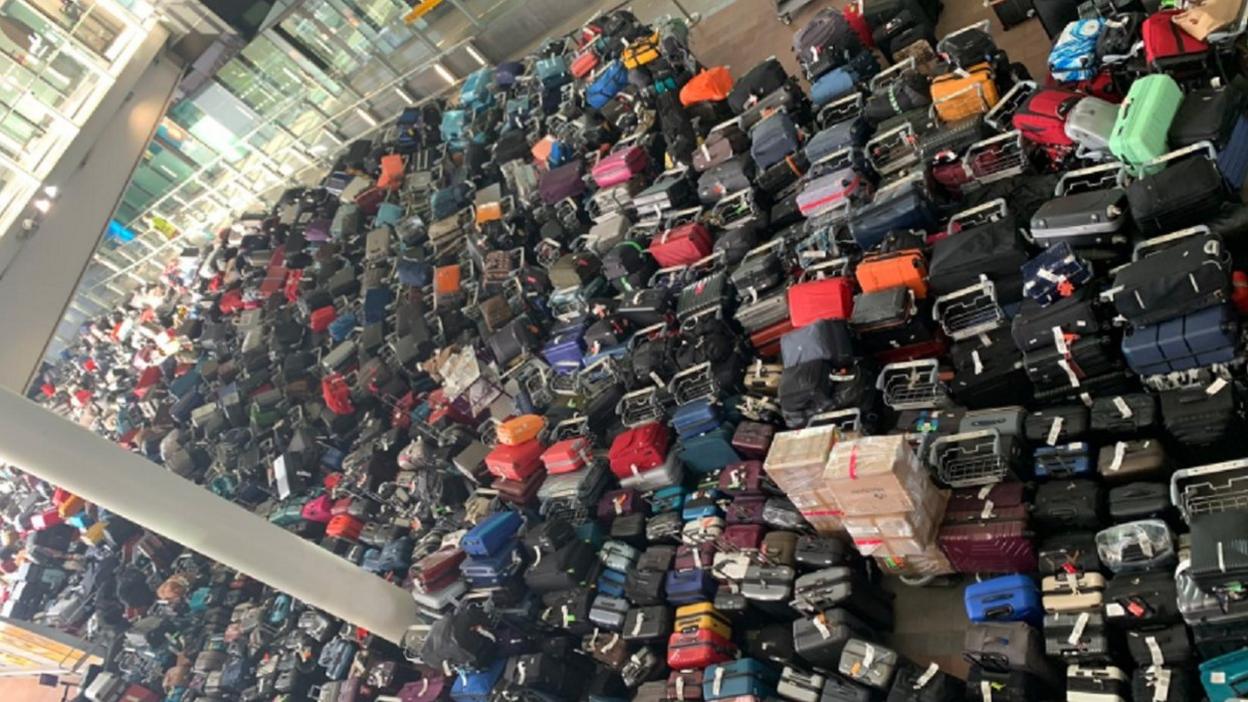
- Published23 June 2022
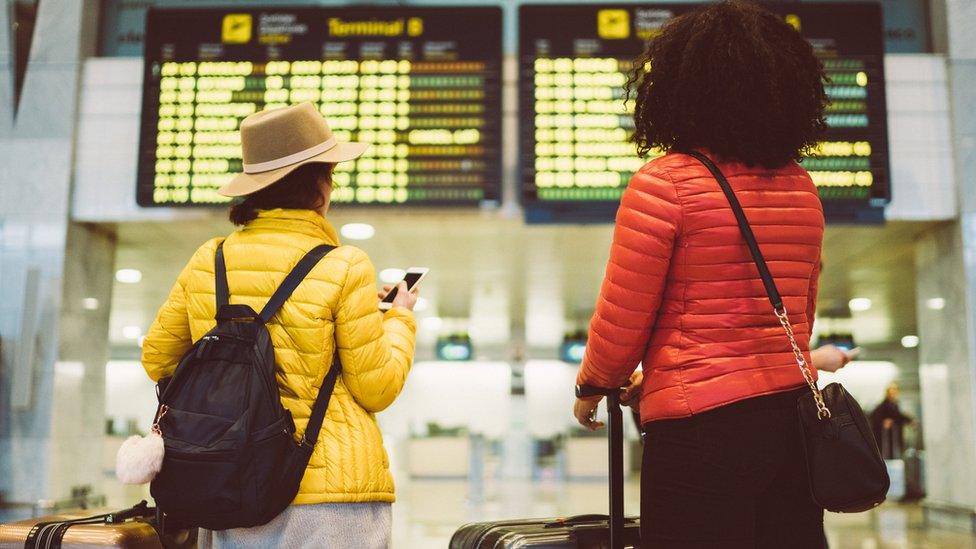
- Published14 June 2022
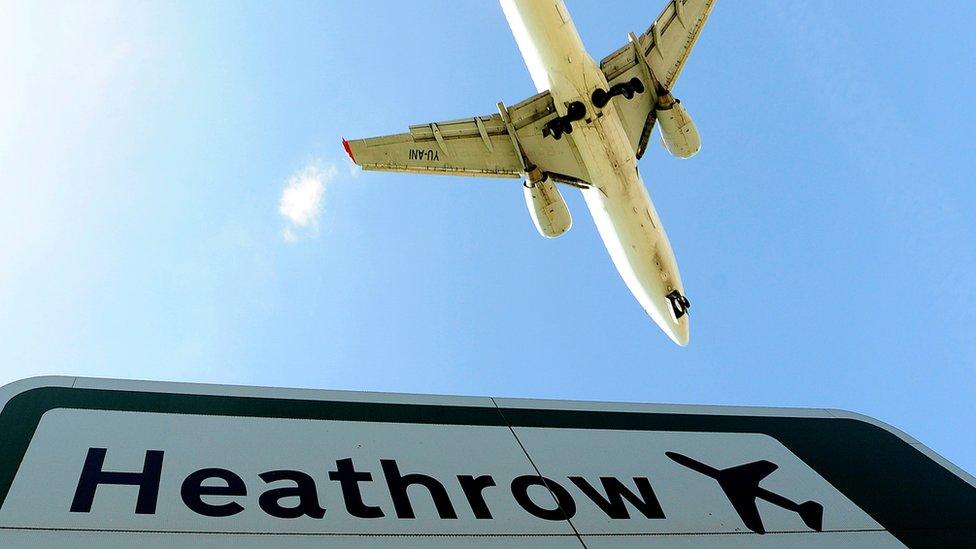
- Published19 October 2021
